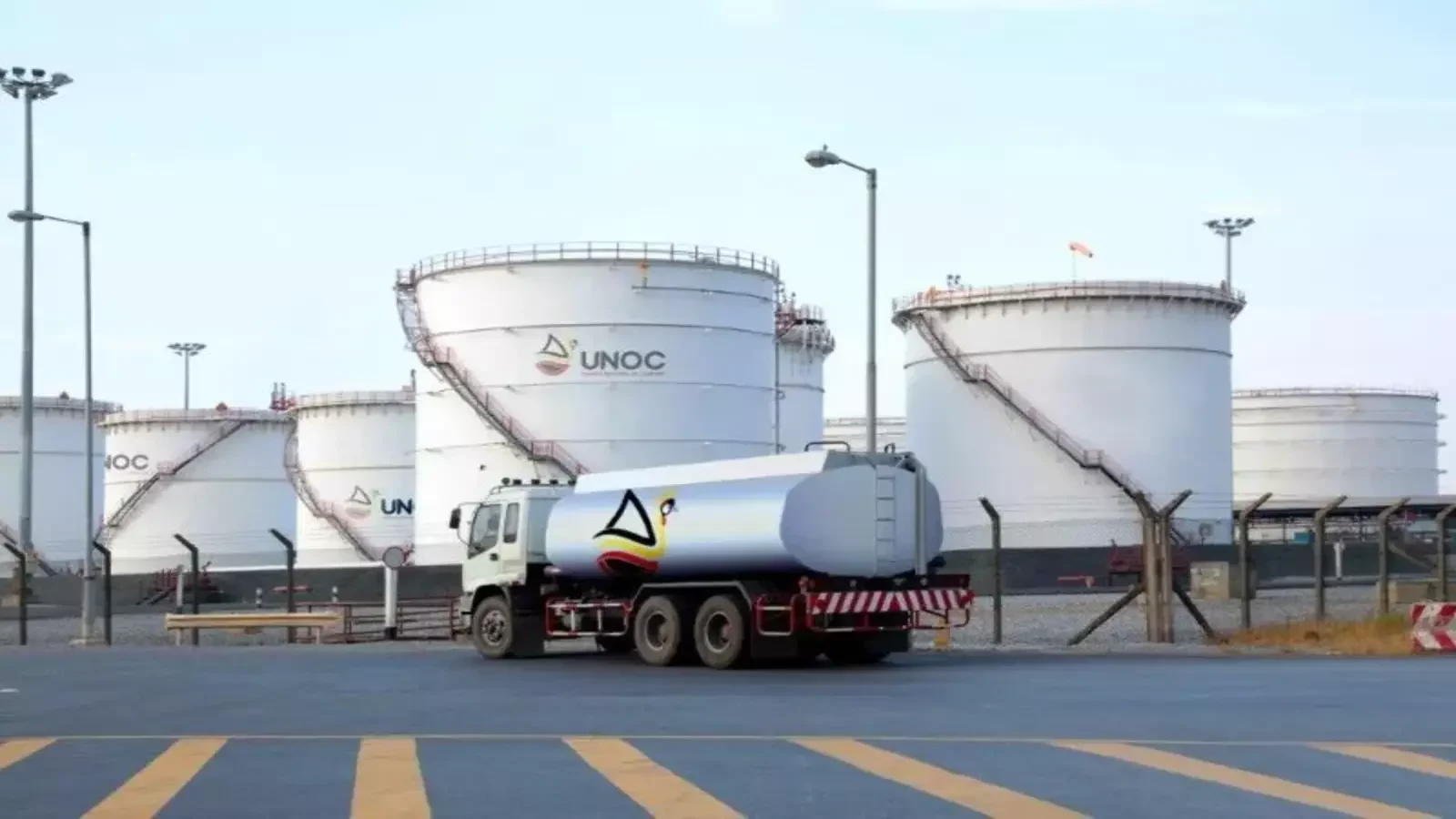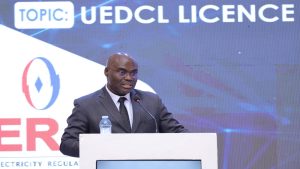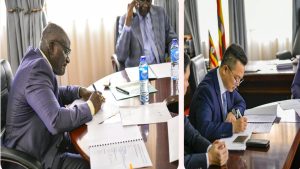Share
Uganda has petitioned the East African Court of Justice to declare that Kenya’s conduct in preventing the Energy and Petroleum Regulatory Authority (EPRA) from providing a petroleum import licence to Uganda National Oil Company (UNOC) is unconstitutional.
According to Uganda Attorney General Kiryowa Kiwanuka, Uganda’s reliance on Kenyan oil marketing corporations to import and provide petroleum products has exposed the country to supply vulnerabilities, resulting in unwarranted hikes in gasoline pump prices.
On December 28, 2023, Kiwanuka filed a statement of reference against Kenya’s Attorney General at the East African Court of Justice in Arusha, Tanzania.
He claims that Uganda now imports over 90% of its refined petroleum products through the port of Mombasa in Kenya, and that these goods are carried to Uganda via the pipeline owned and maintained by the state-owned Kenyan Pipeline Company Ltd.
According to Kiwanuka, the importation and supply of refined petroleum products into Uganda has traditionally been handled by oil marketing companies operating in Kenya through the Kenya open tender system and, later, through the government-to-government arrangement Kenya adopted in early 2003.
According to court filings, the agreement calls for Kenyan oil marketing businesses to import petroleum products and sell them to Ugandan oil marketing companies.
According to Kiwanuka, Uganda has changed its policy on the sourcing, importation, and delivery of petroleum products for the Ugandan market.
As a result, Uganda was empowered to be the sole importer and supplier of all petroleum products for the Ugandan market through UNOC, a state corporation wholly owned by the Uganda Government established under Section 42 of the Uganda Petroleum Exploration Development and Production Act, 2013.
According to the Attorney General, in order to implement the policy, Uganda must transfer petroleum products from Kenya to Uganda using the Kenya Pipeline Company (KPC) infrastructure.
According to Kiwanuka, Uganda would engage Kenyan authorities in April 2023 to develop a new strategy for the sourcing, importation, and delivery of petroleum products for the Ugandan market.
According to Kiwanuka, Kenyan authorities assured Ugandan authorities of Kenya’s unflinching support in the execution of the aforementioned policy in accordance with the principles and conditions of the treaty and protocols formed thereunder.
“Following discussions with the relevant Kenyan authorities, UNOC sought to enter into a storage and transportation agreement with KPC.” As a result, Kenya required UNOC to meet certain regulatory requirements, including obtaining an import, export, and wholesale license from EPRA to use petroleum transit infrastructure in Kenya, particularly the Kenyan pipeline system, in furtherance of the new Ugandan policy regulatory requirement,” Kiwanuka claims.
According to Kiwanuka, the regulatory criteria included the establishment of a subsidiary or the registration of UNOC as a firm or a branch in Kenya, as well as the application for an import, export, and wholesale of petroleum products (excluding LPG).
“Uganda found that the above requirements are unnecessary and a hindrance to the implementation of its petroleum policy as the petroleum products in issue were wholly transit goods not destined for Kenya,” according to the Attorney General.
In response, UNOC allegedly filed a breach of contract suit in Kenya for the express purpose of obtaining the license required to fulfill its task under the updated policy of importing all petroleum products for Uganda. According to the claim, EPRA also needed UNOC to furnish many papers and complete a slew of other conditions before the Kenyan petroleum regulator would process and grant a license to it.
A certificate of incorporation, identity documents for all directors, work permits, and proof of financial capabilities were all required.
“UNOC, while objecting to the applicability of the same, processed the foregoing arrangement for the licence including registration of a branch, securing a personal identification number for the branch and the single business permit and submitted an online application for the licence on September 6, 2023,” the complaint states.
Documents show that EPRA considered UNOC’s application via email on September 30, 2023, but rejected it due to the applicant failing to provide proof of 6.6 million litres in annual sales, ownership of five licensed retail petrol stations, and ownership of a licensed petroleum depot.









